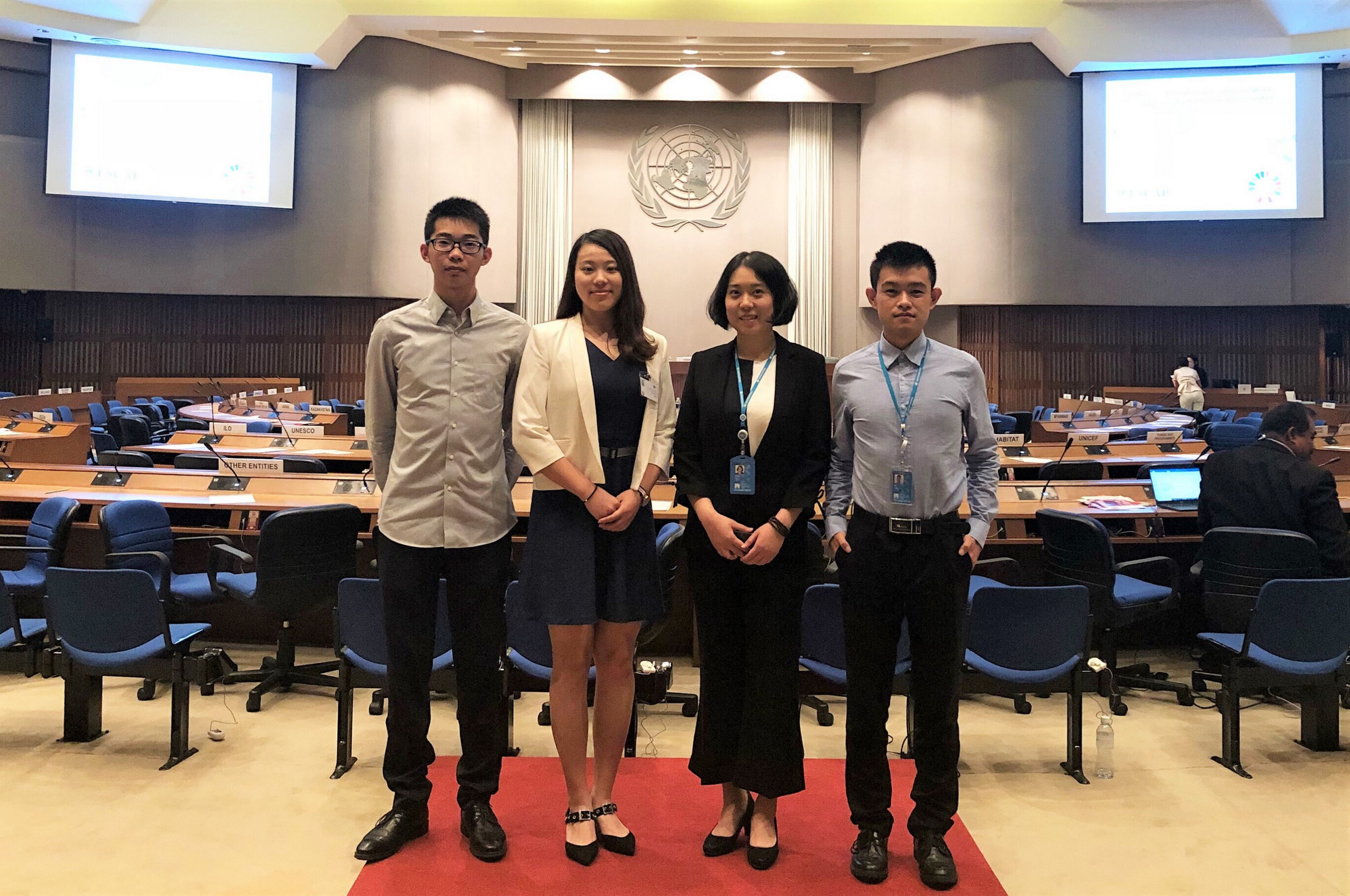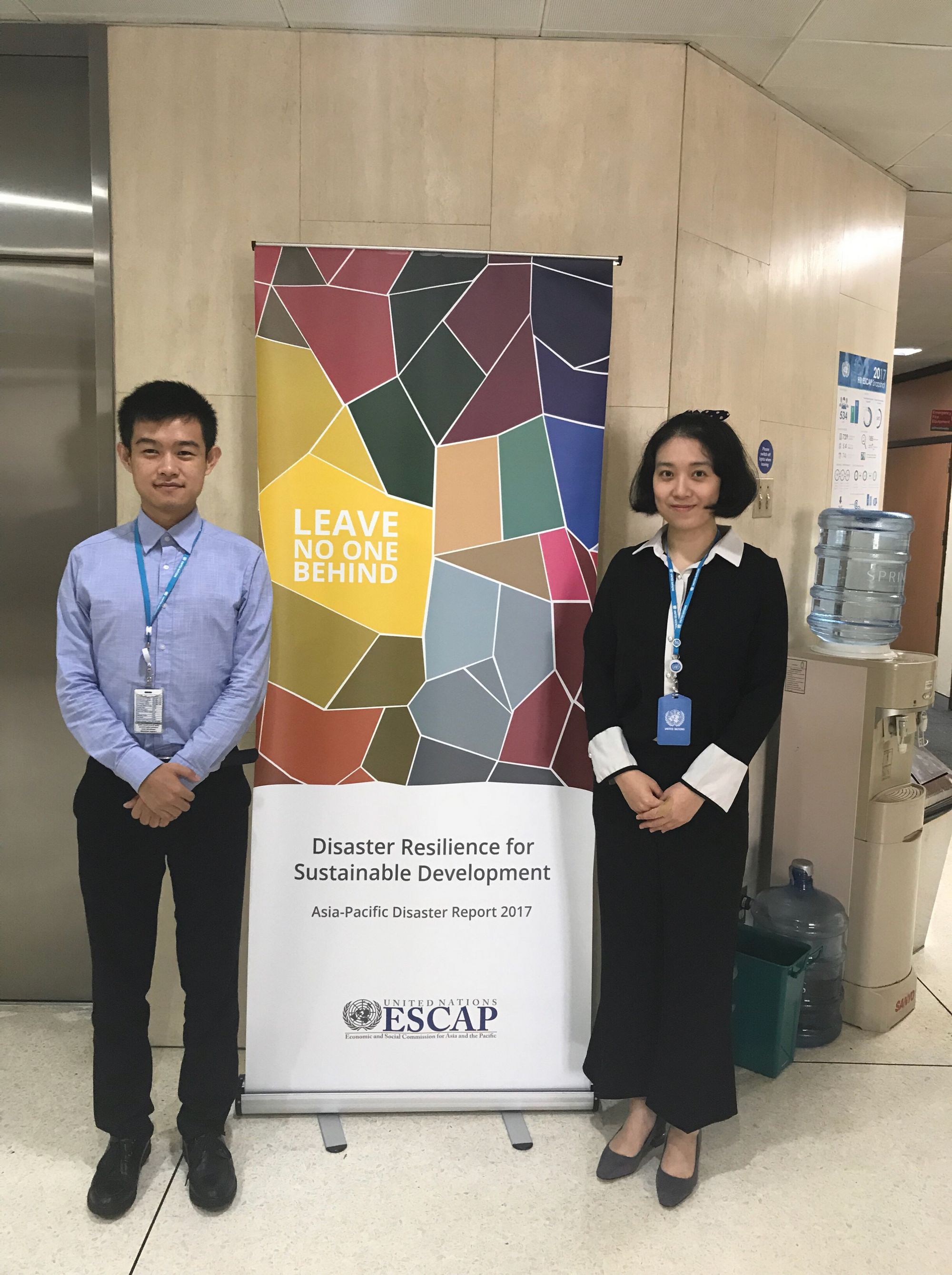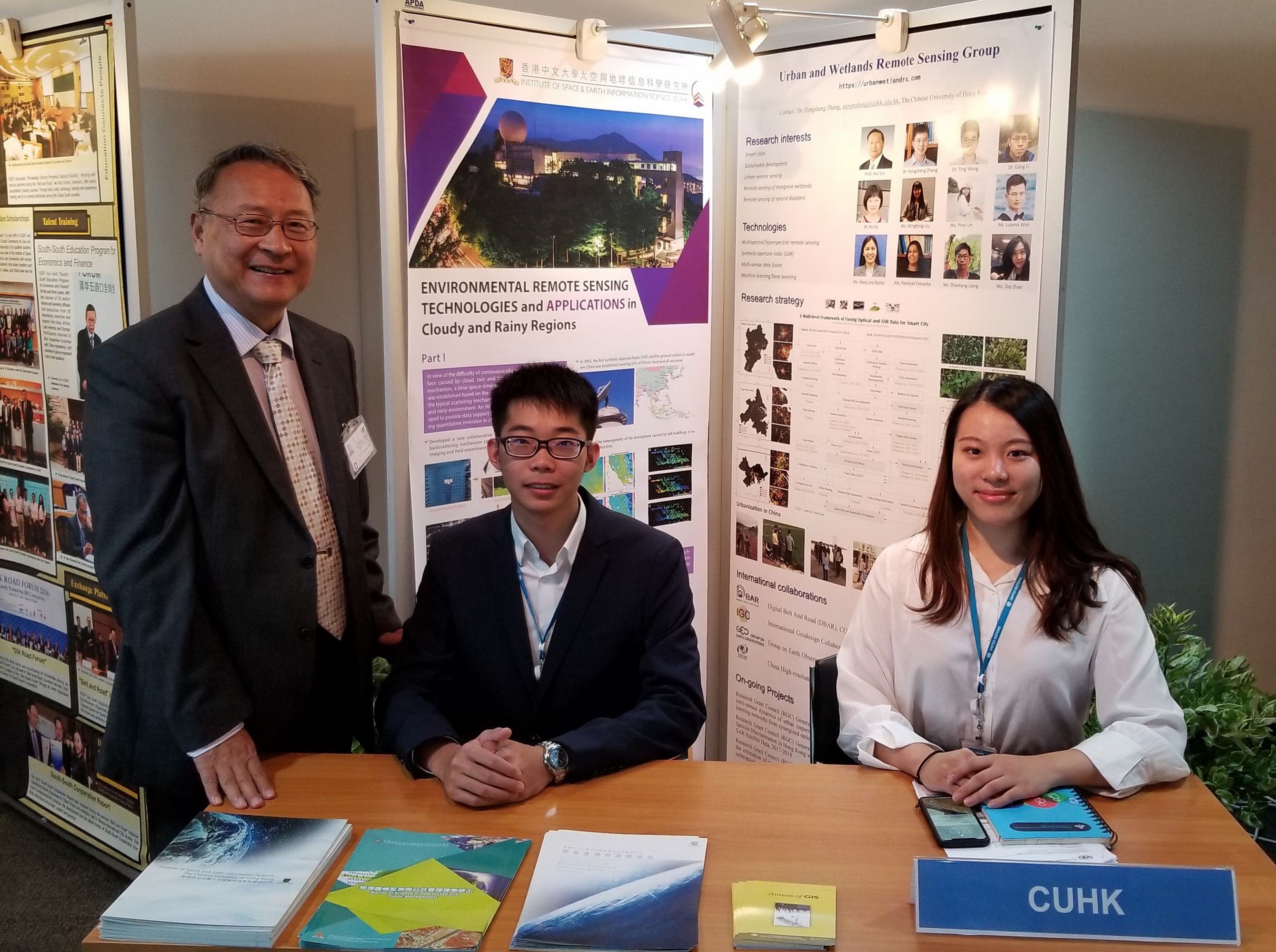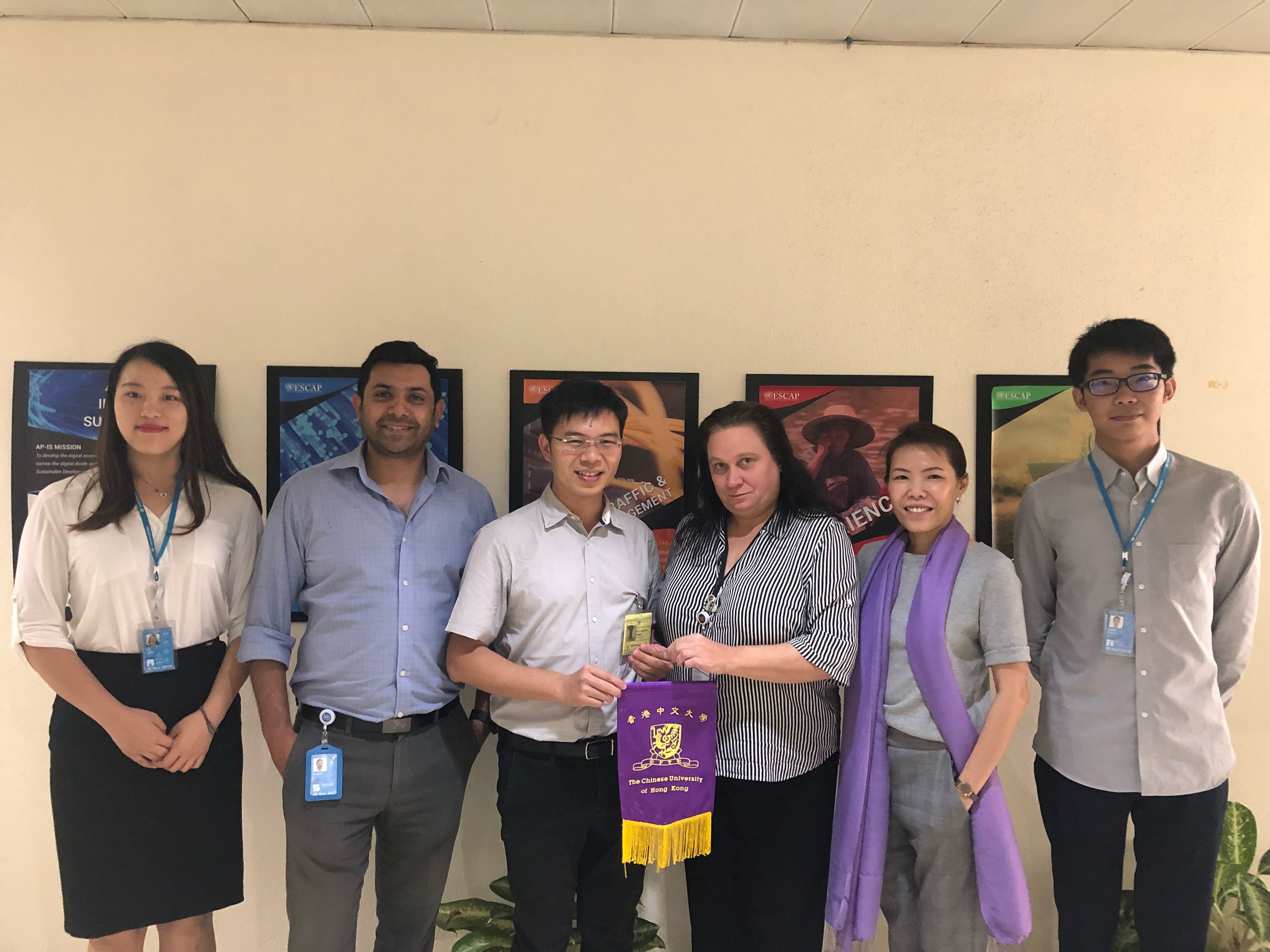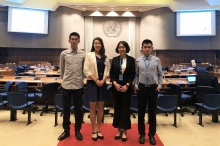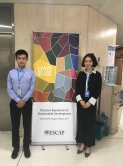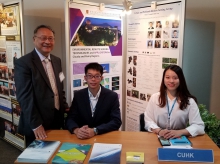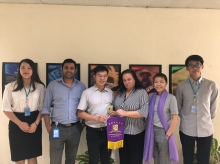CUHK
News Centre
The Sixth CUHK-UNESCAP Internship Programme a Success
The sixth internship programme jointly organised by the Institute of Space and Earth Information Science (ISEIS) of The Chinese University of Hong Kong (CUHK) and the United Nations Economic and Social Commission for Asia and the Pacific (UNESCAP) was completed recently in Bangkok, Thailand. The programme has been supported by the Hong Kong Shun Lung Yan Chak Foundation since 2013. The ISEIS students participating in this programme included Ms. Zhao Ziqi, Ms. Cai Lyutong, Mr. Ma Jiahua and Mr. Liang Zhaotang. Highly praised by the UN agencies involved, they were requested to extend their internship period to three months.
The interns were mainly involved in the work of two ESCAP divisions, the Information and Communications Technology and Disaster Risk Reduction Division (IDD) and the Transport Division (TD). Their major activities included:
- Generating visual simulation of future space technologies applications based on existing products in the form of video.
- Proposing the research direction of the space application economy and the policy for spatial application of economic development. This subsequently helped the UN to publish a report on the development of space application economy to encourage government, NGOs, private enterprises, and other social forces to work together to promote the development of the space application economy.
- Participating in the writing of the action plan matrix, an annex to the Charter for Space Applications and Sustainable Development Conference, covering six topics; disaster prevention and mitigation, climate change, resource management, connectivity, energy and social development, and it identifies the needs and available technologies of member countries.
- Assisting the Disaster Risk Reduction Section in translating the findings of the Satellite Disaster Reduction Application Centre under the National Disaster Reduction Centre of China’s Emergency Management Department on the dam breach in Laos into English.
- Participating in the layout of two exhibition booths and follow-up report of the Committee on Information and Communications Technology & Science, Technology and Innovation, Second session (CICTSTI2).
- Participating in the promotional video production of the third Ministerial Conference on Space Applications for Sustainable Development in Asia and the Pacific, including the production of clips and transition effects, and assisting the Space Applications Division in communication with CUHK in video production.
- Updating the GIS database of TD including the Asian Highway and Trans-Asian railway network, dry ports and sea ports, the ESCAP green transport system, country level road maps and the population maps of 14 countries, to provide graphical mapping for the DA 11 RECI project. In addition, the interns re-integrated the geographic information data scattered in different departmental servers, and updating the data sets and official data that can be used in the coding system of TD in the future.
During the three-month internship in Bangkok, the interns participated in international cooperation, broadened their international horizons, and gained a clearer understanding of their future career development and social responsibility.
Ms. Zhao Ziqi, one of the interns said, “One of the great things about working in the UN is that there are many big events and meetings held here and we got to know the schedule from the email or the UN Conference Centre (UNCC) boards. We were free to attend any open meetings, workshops, panel discussions and lectures as long as we got permission from our supervisor. These events and meetings were a good chance for us to know more about the world and the UN. I also developed my communication skills, getting to know more international staff, consultants and interns. All the events I attended and the people I talked to helped me expand my views. Throughout this internship, I put academic learning to practical use and learned some working skills.”
(From left) Mr Liang Zhaotang, Ms Cai Lyutong, Ms Zhao Ziqi, and Mr Ma Jiahua, postgraduate students participating in the sixth CUHK-UNESCAP Internship Programme.
The interns attend the Committee on Information and Communications Technology & Science, Technology and Innovation, Second session (CICTSTI2).
Professor Lin Hui, Principal of the internship programme and the interns attend the third Ministerial Conference on Space Applications for Sustainable Development in Asia and the Pacific.


